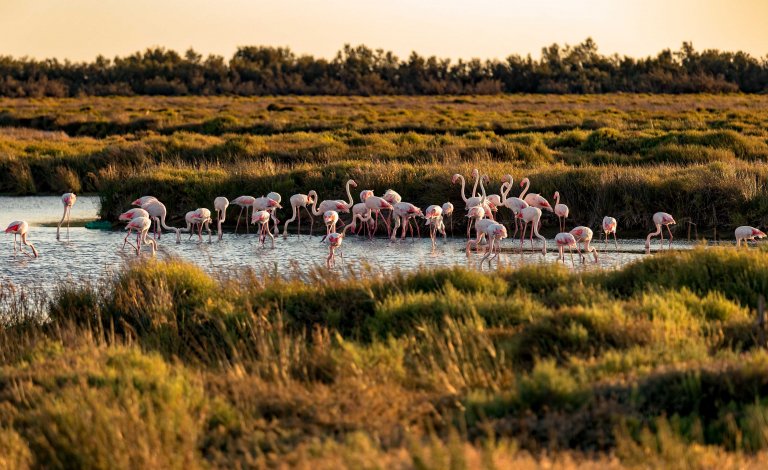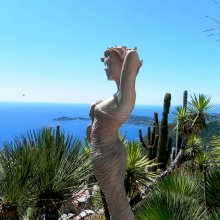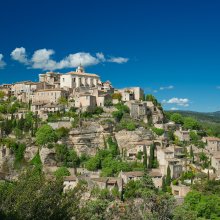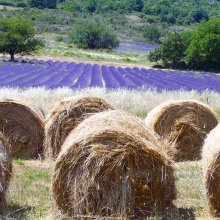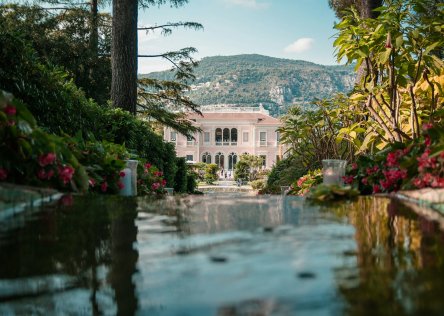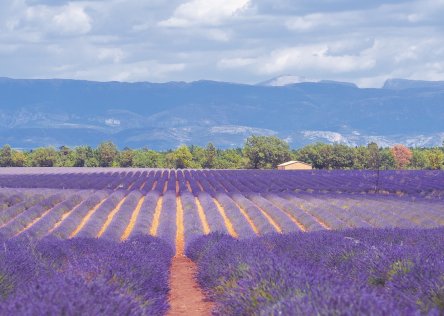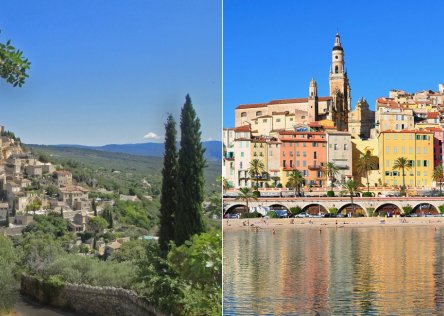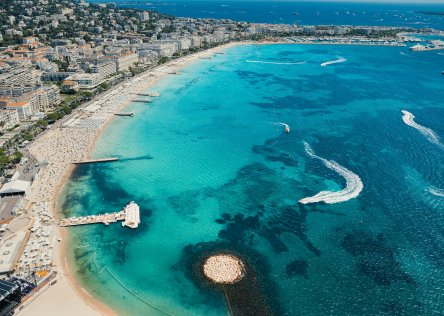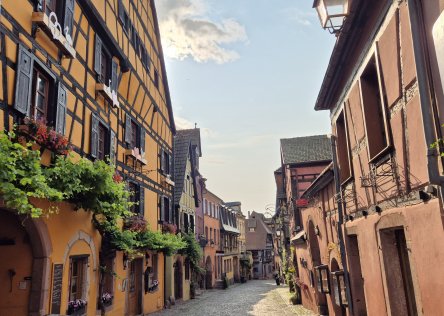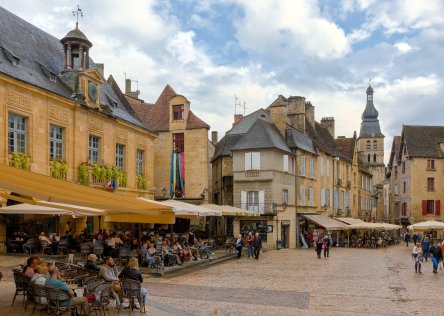By Kaya Lemaire
When I was 18, I didn’t know anything about France beyond the Eiffel Tower and baguette with brie. I wouldn’t have dreamed of travelling to the South, because I thought that the quintessential French experience lay in the streets of Paris.
What I didn’t realize is that France is a mosaic of cultural nuances, landscapes, wildlife, and cuisine. In fact, lying nestled in between Montpellier and Marseille is one of the country's truly unique regions.
A road trip to a magical place in the South of France
Was I in for a surprise when we found ourselves hurtling south from Arles toward the magic of the Camargue.
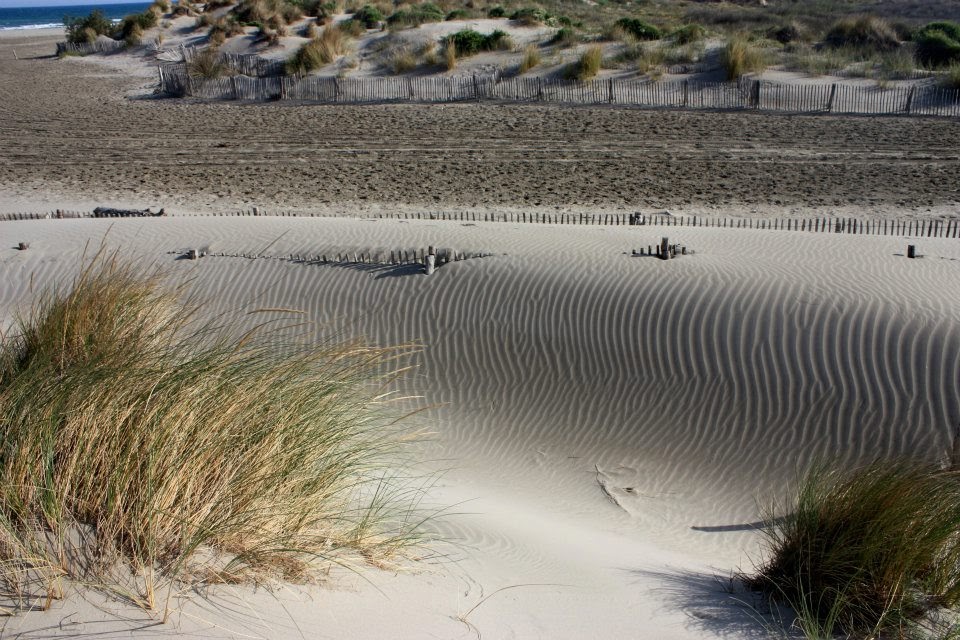
Sand dunes in the Camargue in southern France (Photo: Kaya Lemaire)
My first impression of the Camargue in July was of toasted landscapes, rippling with blazing heat coming off sand dunes by the flat stretches of salty lagoons. The long grasses were overgrown, wild, bunches of golden hair, styling the dry portions of land where shrubbery grew freely among Ash, Willow and White Poplar trees.
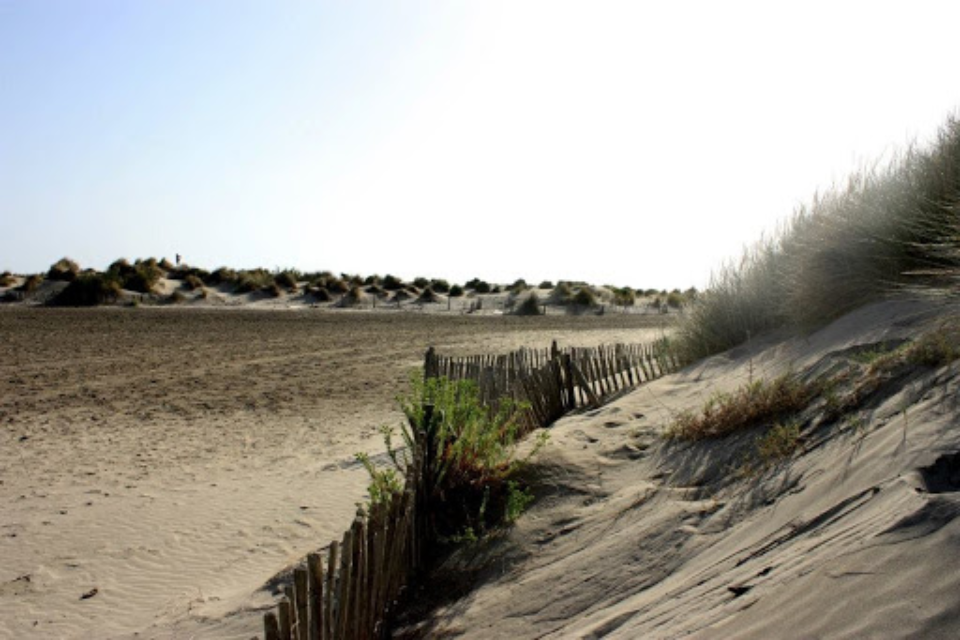
The most memorable ‘first’ in the Camargue, of many, was seeing wild flamingos taking flight, showing off their massive, two-toned black and pink wings. I could go on and on about the area's beauty, which I will, covering each special part of the Camargue.
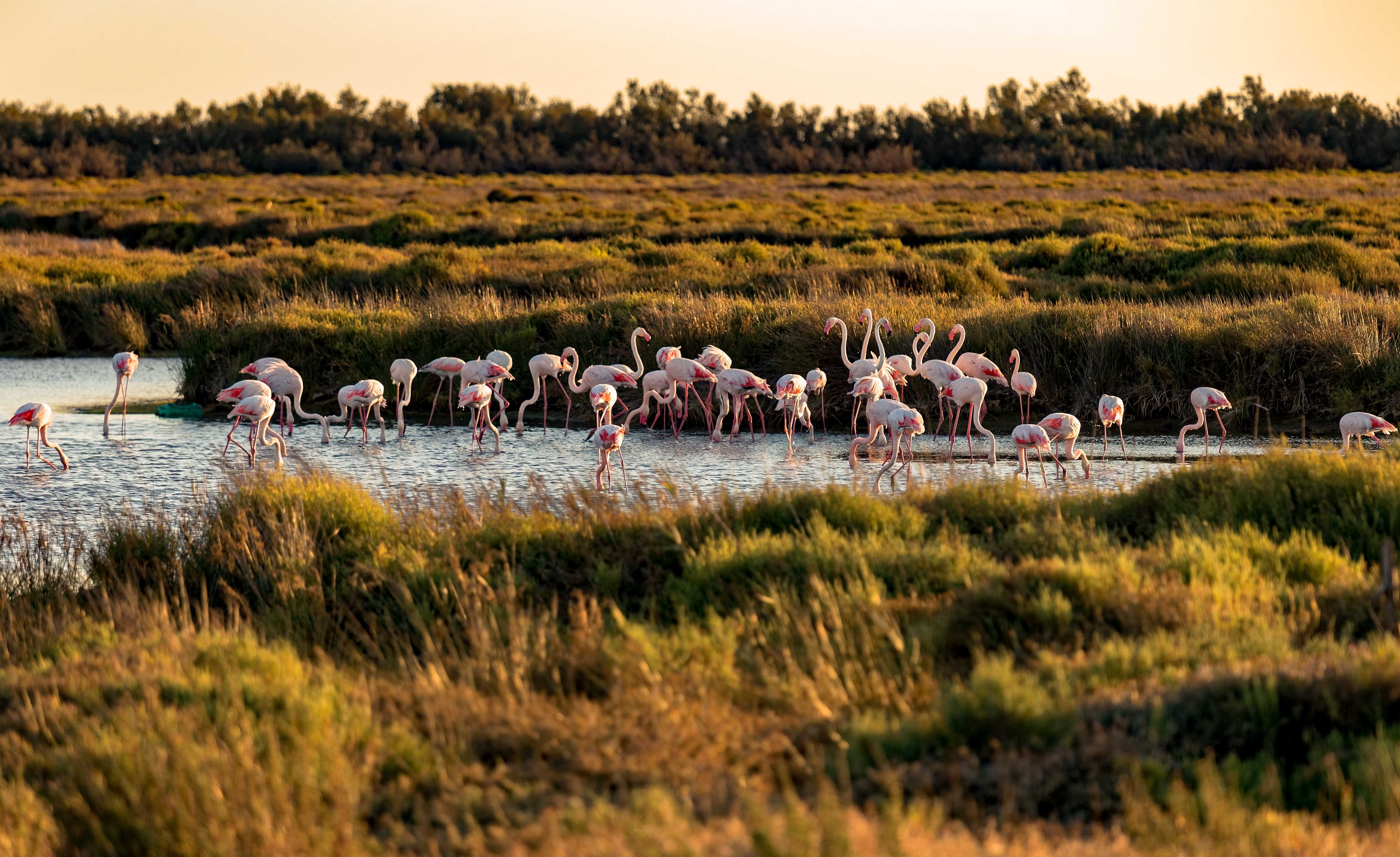
Flamingos in the Camargue (Photo: Piqsels CC0)
Birdwatching in the Camargue
One of the most popular experiences in the Camargue is birdwatching — and for good reason. The wetlands are host to over 400 species of birds, the most famous being pink flamingos, which migrate to the area every year.
The climate and geography of the wetlands is ideal for the birds, as 35% of the area is made up of marshes and lakes, perfect for them to feed and keep cool.
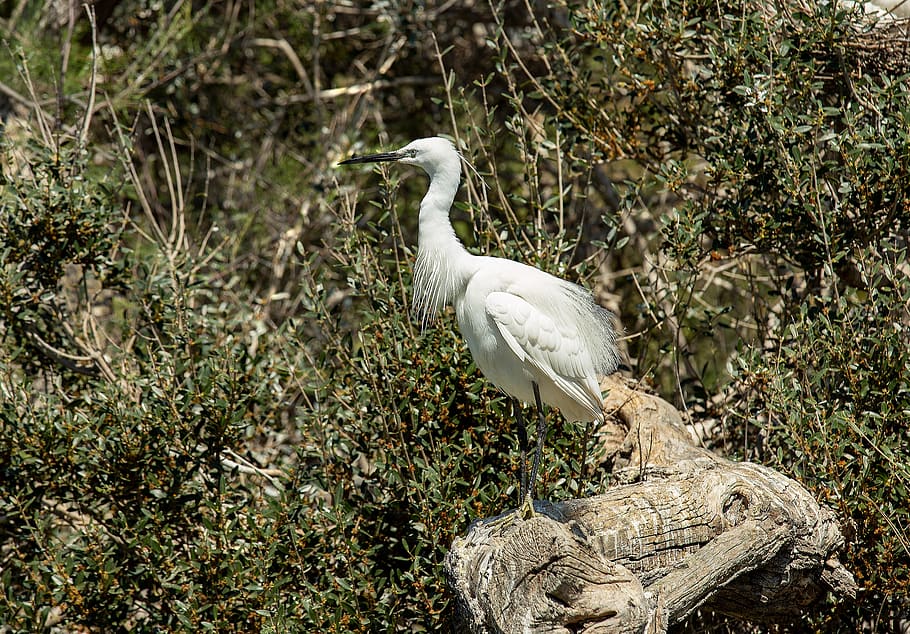
Egret in the Camargue (Photo: Piqsels CC0)
-
The best time for birdwatchers to visit the Camargue
If you want to see the largest number and variety of bird species, it’s best to visit in autumn or spring, when visitors gather to witness the hundreds of thousands of birds migrating.
-
Visiting the Ornithological Park of Pont de Gau
We loved walking through the Parc Ornothologique du Pont du Gau on raised wooden walkways to witness the magnificent birds up-close along the paths or from hideout huts throughout the park.
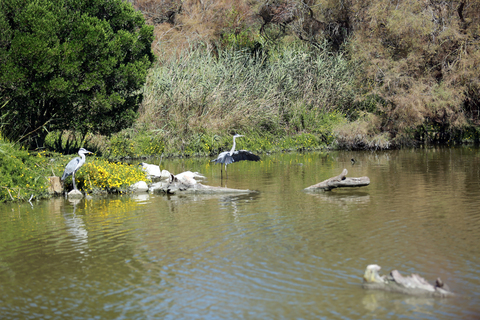
The Camargue is great for birdwatching (Photo: pxhere CC0)
-
Birds to watch out for
Keep your eye out for pelicans, egrets, heron, stilts, and many other birds, as well as flora unique to the region.
Luckily, the area is easily accessible by wheelchair and there is a tasty snack bar at the entrance for weary bird-watchers. People often spend 1 to 2 hours perusing the park, camera and binoculars in hand.
TIP: Be careful; the marshes are also popular with mosquitos! Remember to apply bug spray often while you’re in the area.
The Camargue Horses
Equally famous fauna of the Camargue come in the four-legged, white variety: semi-feral horses.
Using dikes, humans have altered the wetlands to drain much of the water that used to fill the area, which allows for agriculture and animal training grounds.
Although the Camargue horses are native to the region and used to run completely wild, they have been mostly tamed by the gardians, or Camarguais cowboys.
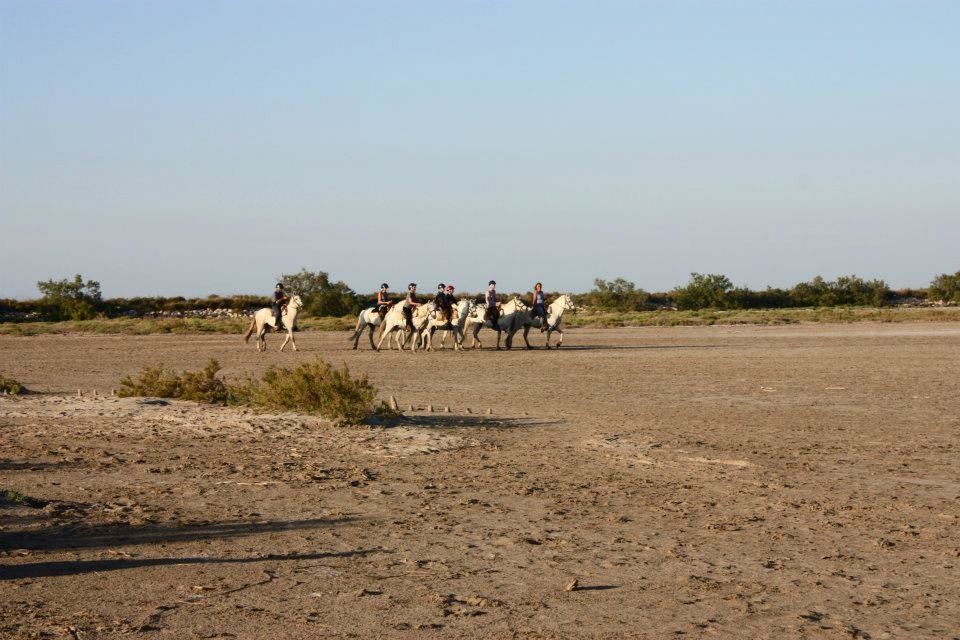
The horses of the Camargue (Photo: Kaya Lemaire)
-
Horseback riding
If you’d like to ride one of these bright beauties there are a number of horse riding schools that offer daily experiences. They’ll often include a tour around the marshes and the beach, a sunset or even a sunrise if you’re an early riser.
Bull-Racing in the Camargue
Reminiscent of the bullfighting festival of San Fermin in Pamplona, Spain, there is a rich tradition of raising bulls in the Camargue. But don't worry - these fights aren’t to the death, unlike their Iberian counterpart.
These are slightly more humane, taking place at the local ring in Domaine de Mejanes. Here, there are horse shows and la course Camarguaise: where the raseteur tries to snatch a rosette from the bulls’ head.
In the summertime, there are bull festivals throughout regional towns, where people throw parties and run the streets in honour of the wild bulls. They are revered and respected by the locals, and remain an important cultural heritage.
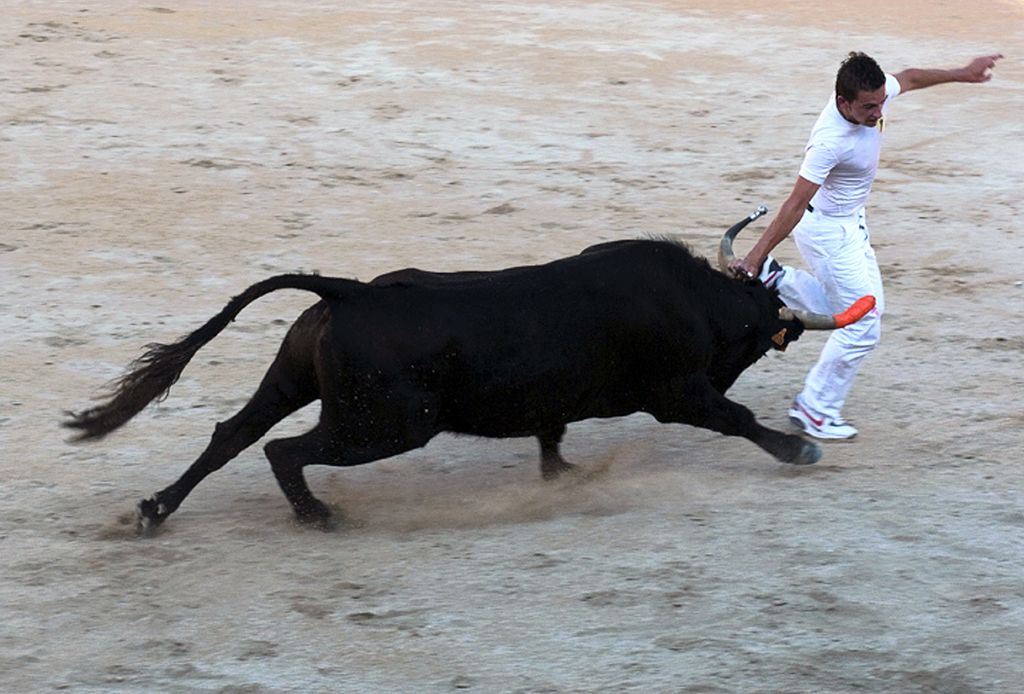
Bull racing in the Camargue (Photo: graphia CC-BY 2.0)
Drink up: wine-tasting
Many travelers have one thing at the front of their minds visiting southern France — the vin. And let me tell you, it pairs beautifully with the ambiance of dusty blue skies and lazy days in the Camargue.
-
Local wineries
There are a number of wineries for you to visit, best enjoyed on a warm summer or spring late afternoon, when you can watch the colors change around you as you sip on a crisp rosé.
This is the most popular type of wine in the region, and surprisingly the pale pink color comes from black grapes grown in sandy soil.
We loved visiting the Mas de Valeriole, a cozy and welcoming tasting room inside an old stone house, set in the eastern part of the Camargue. The family at Valeriole offer a warm hospitality and informative tasting experience, for you to get the most out of your trip to the winery.
Most other wineries offering tasting or tours are located just outside the borders of the national reserve. On the way to Aigues-Mortes, a short distance from the west side of the park, there are a number to choose from.
Towns in the Camargue
The Camargue wetlands are only host to two towns, which lie within the two arms of the River Rhone that connect with the Mediterranean: the Petit Rhone, along the west side, and the Grand Rhone flanking the east. These are the approximate borders of the Camargue Regional Park, and not many people actually inhabit the area within it.
-
Saintes-Maries-de-la-Mer
The capital of the Camargue embodies a Mediterranean vibe with it’s typically white, stone buildings, topped with burnt-orange terracotta roofs.
-
For beautiful views...
The village is low-lying, with the church of Notre-Dame-de-la-Mer jutting up in the middle of town. I would recommend climbing the stairs to the roof, where you can take in the warm hues of Saintes-Maries-de-la-Mer from above. You may recognize the sights from Van Gogh’s View of Saintes-Maries, painted in 1888.
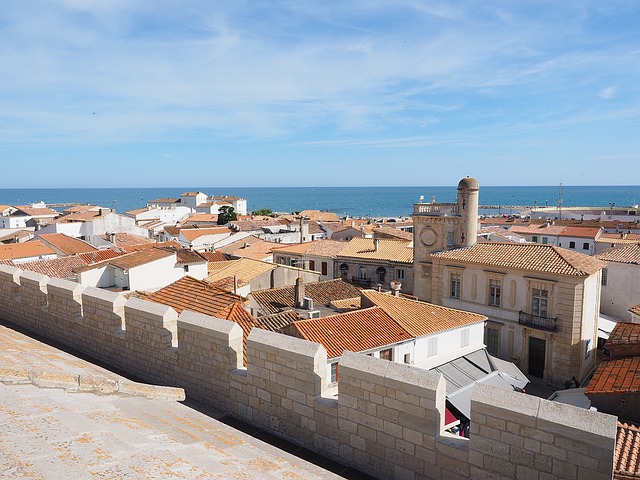
View of Saintes-Maries-de-la-Mer (Photo: Pixabay CC0)
-
Things to do in Saintes-Marie-de-la-Mer
This normally quiet town of around 2,000 inhabitants can swell to 500,000 in the summertime, so expect a lively atmosphere if you visit during the summer months.
Leading up to the peak season, the town hosts a pilgrimage in May for the French Romani populations, who come to honour their patroness saint Sarah.
Take your time to peruse the local restaurants, quaint shops, and historical landmarks in the town, as there are many.
Visit the morning market on Monday or Friday to buy some french delicacies, or perhaps a flamenco dress, in the Spanish-meets-French influenced streets.
-
Salin-de-Giraud
The town of Salin-de-Giraud itself isn’t as quaint or ‘beach-y’ as the nearby Saintes-Maries-de-la-Mer, but it offers visitors a unique experience nonetheless.
Famous for its salt flats, Salin-de-Giraud is the starting point for your walk or bike ride over to the observation point, where you can meander through unearthly landscapes.
If you would like to grab a bicycle in town, the Laurelyne boutique offers affordable rentals and quality bikes. The salt flats are a short ride and it’s well worth a visit.
The colors and the crunchy film of salt all over the earth makes it feel like you are wandering into a movie set of Jupiter or Saturn.
Make your way over to the pink lake, leading into streams so colorful that they look surreal.
If you continue down the Route de la Mer on your bicycle, you’ll eventually reach a long beach, Plage de Piemanson, shielded by sand dunes.
Continuing west on the road is the Faraman Lighthouse, beautifully secluded on a tree-studded sand bar. If you’re lucky, you’ll even see some flamingos on your way there.
TIP: Be sure to bring some sun protection, as the walk or ride is uncovered and not a short one.
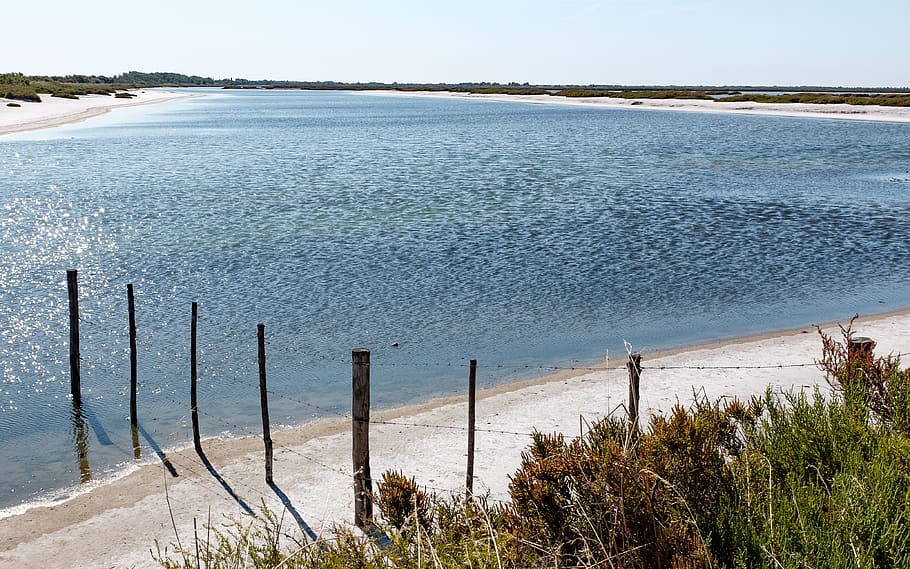
Salin de Giraud, Provence (Photo: Piqsels CC0)
-
Other towns worth visiting near the Camargue
-
Aigues-Mortes
Commune with historical landmarks, surrounded by well-preserved medieval walls.
Beaches in the Camargue
Long stretches of sandy beaches, a place for peace and relaxation, lie speckled all along the edges of the Camargue, on arms reaching out toward the Mediterranean Sea.
Beach-lovers can sample a wide variety of activities, such as off-roading, cycling, or horseback riding. Or you can just relax on the beach with a good book! The beach Beauduc is an ideal spot for kitesurfing, and it’s possible to take lessons if you’re a beginner.
If you take a walk along East Beach (near Saintes-Maries-de-la-Mer), you may reach the Totem, a collaborative public art piece that began with a collection of driftwood by a local artist. The East Beach Totem is open for everyone to enjoy and is ever-evolving, shaped by the emotions and memorabilia of its visitors. If you happen to be there early in the morning, you may encounter the artist, Richard, and hear the fascinating story of how this piece came to be.
If you fancy a more convenient beach day, the Plage du Crin Blanc is set just in front of Saintes-Maries-de-la-Mer, with fine white sand and a few shaded patios. Soak up the sun and seaside breeze from Farniente Plage, a beachfront restaurant serving up fresh seafood and cold drinks.
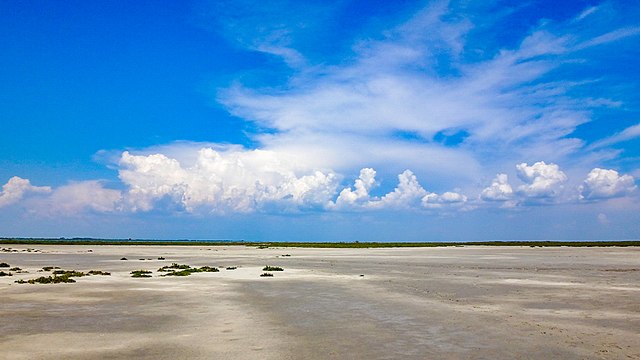
Camargue beach landscape (Photo: Pia Parolin CC-BY 4.0)
Cuisine: Flavors of the Camargue
Typical flavors of the Camargue are reminiscent of the earthy and simple way of life in the region. Staples like rice, meat, salt, and fish are emphasized and expanded upon.
The camarguais cows and bulls are a quintessential part of cuisine in the Camargue. When a bull’s fighting days are over, they’re used to make a deliciously rich stew, full of red wine and bursting with umami. With your gardiane stew, you can also sample a side of locally grown rice. The red rice from the wetlands has a lustrous color and surprisingly nutty flavour.
Being a salty, seaside region, restaurants in the Camargue offer well-seasoned and freshly-caught seafood.
A local speciality, called tellines, are small, flat, shellfish found in the shallows where a mix of salt and fresh water provides an ideal habitat for them to flourish. Harvesting them is back-breaking work and fishermen now have to wade out farther into the sea than in prior years, due to overfishing. These tiny, tasty shells are often served as an aperitif, with some crusty bread, olive oil, and salt, and paired nicely with dry white wine.
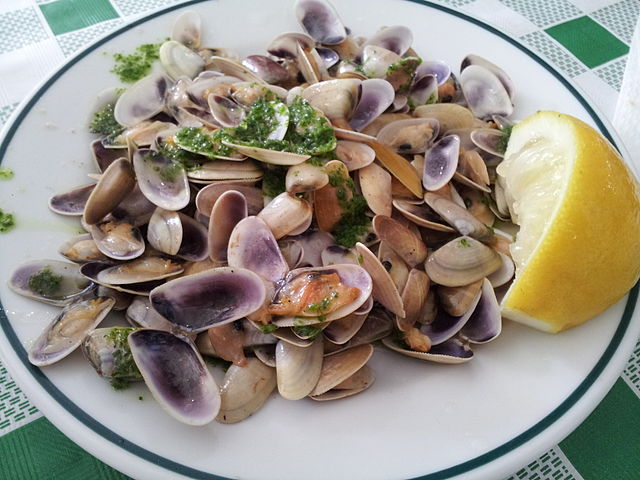
Tellines (Photo: Coentor CC-BY SA 4.0)
Restaurants in the Camargue
-
L'atelier de nicolas $$
Located in Aigues-Mortes, this is a great stop for lunch. Everything is fresh and homemade, thus the choice is limited but delicious.
-
La Chassagnette $$$
Upscale Michelin star restaurant, not to miss, cooking up organic vegetables grown in their own garden. Book in advance to catch this unique dining experience. Located in Arles.
The Camargue will always be close to my heart, as its variety of landscapes, mystical flora and fauna, and the camarguais way of life leave an impression.
Whether you’re looking to relax or try something new on your upcoming trip, the Camargue offers something for every type of traveler.
Take in the sights and lush sound of the waves lapping at your toes as you enjoy all the beauty this region has to offer.
With an ever-changing world and environment, it may not be around forever.
Experience the magic of the Camargue while you can, because it’s truly a world of its own.
If you are interested in visiting this area as part of one of our Provence itineraries, we invite you to contact us.
